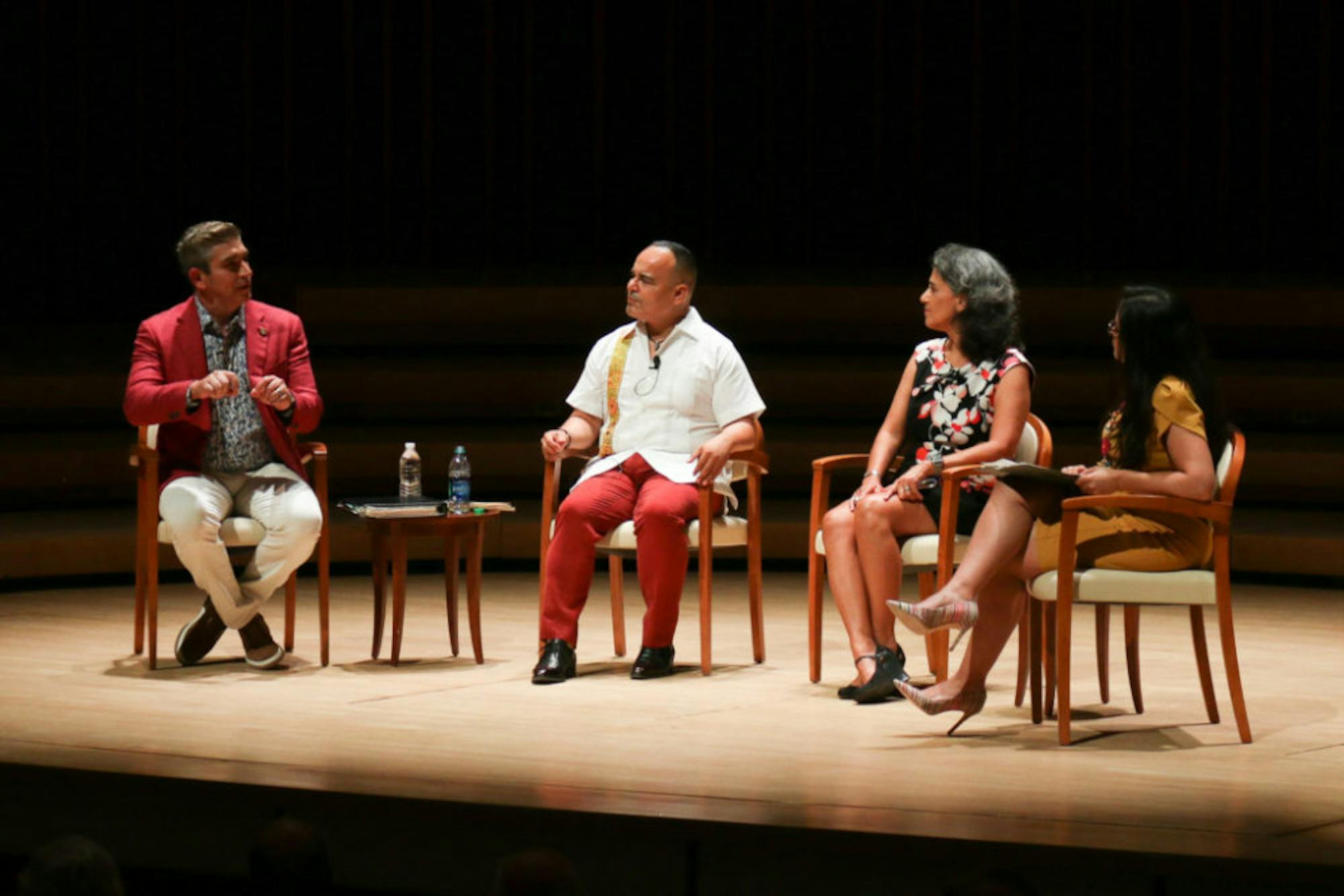
The 2019 Atlanta Journal-Constitution Decatur Book Festival kicked off a weekend full of literary events with an opening keynote held at Emory’s Schwartz Center for Performing Arts on Aug. 30.
For more than a decade, the Decatur Book Festival has brought together authors, book lovers and creative spirits alike through an annual street and literary fair. Its 2019 opening keynote reminded community members that the festival is a true local gem.
Emmy Award-winning broadcast journalist Mariela Romero moderated the panel hosted at Emory, which consisted of Latinx writers Richard Blanco and Rigoberto González along with Gabriela Baeza Ventura, executive editor of Arte Público Press. Blanco, former President Barack Obama’s second inaugural poet, last visited Emory earlier this year.
During the panel, Blanco shared anecdotes about his mother, who left Cuba in exile when she was seven months pregnant with him. Romero posed questions asking the panelists how being writers of Latino heritage had influenced their identities. Ventura asserted that Latinos must “plant their feet on the ground” and embrace their identities as immigrants who belong in the United States. Blanco detailed the ostracism that can occur within immigrant communities. He argued that it’s important to “negotiate a space” by creating a support network, or else the U.S. will always seem unwelcoming.
González also shared the pressures that come with being the child of undocumented immigrants within the U.S. He needed to learn English just to communicate with others often on behalf of his family. Ventura emphasized that immigration would be perceived more positively if it could be understood as “something beautiful” rather than as burdensome to a country. The promise of America comes with the ideal that everyone can contribute to its culture, and she argued that Latinos embody the promise that “we are larger than ourselves,” coming together as a community.
After the discussion, the panelists each read a poem relating to immigration, and the event concluded with a question-and-answer session, during which attendees took the opportunity to share their own experiences with immigration. One woman, a local educator, spoke about children leaving detention centers and entering Atlanta public schools like her own. The panelists emphasized that these children must realize they are not alone and that a support system exists within the U.S. that needs to embrace and welcome these children.
Another audience member asked how to approach writing as a minority despite struggling with thoughts of self-doubt and insecurity. González shared how there was very little representation of Latinx writers within modern literature, explaining that he instead turned to other minority communities, like African Americans, and drew inspiration from authors such as Toni Morrison. Blanco encouraged minority writers to embrace their immigrant identities, to leave the fear behind that “this story isn’t mine” and to tell the truth that needs to be told.
This event only served as a brief preview of how thought-provoking the rest of the festival was, and event attendees were in for a treat this year. With the current political climate in the U.S., it’s especially important to come together and raise more awareness on how immigrant representation in literature can promote a greater understanding of other cultures.








